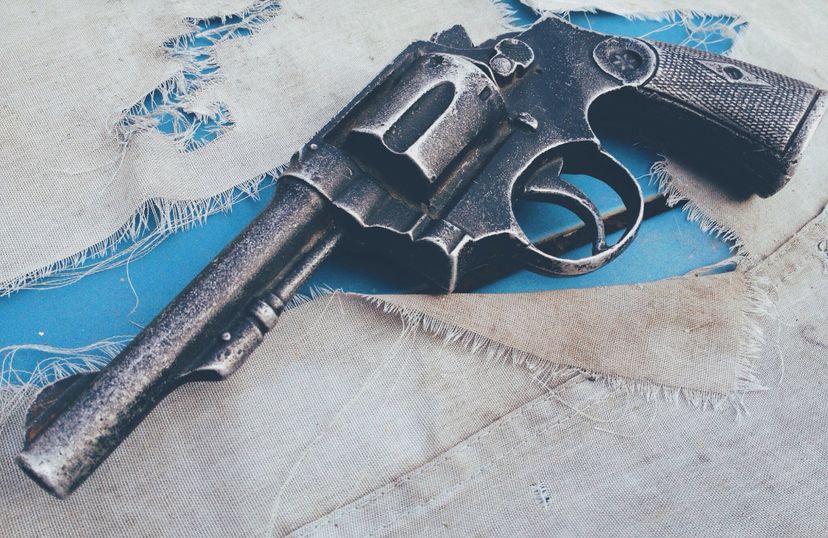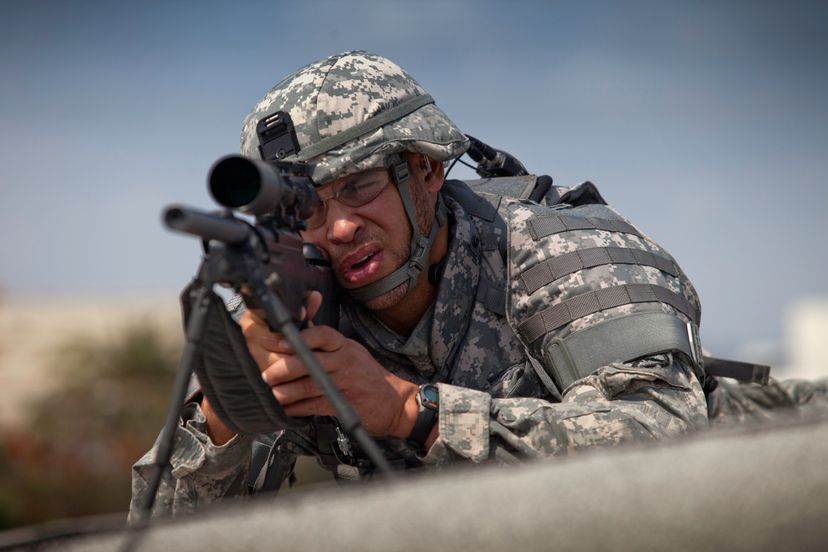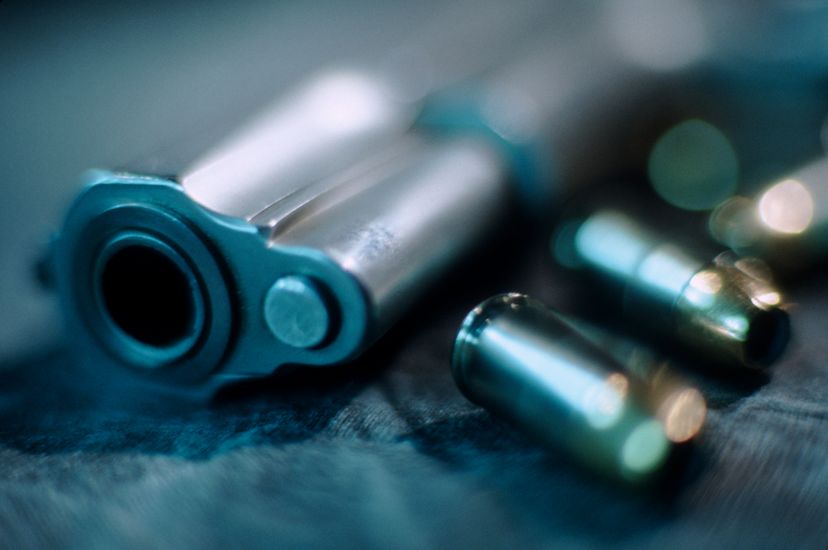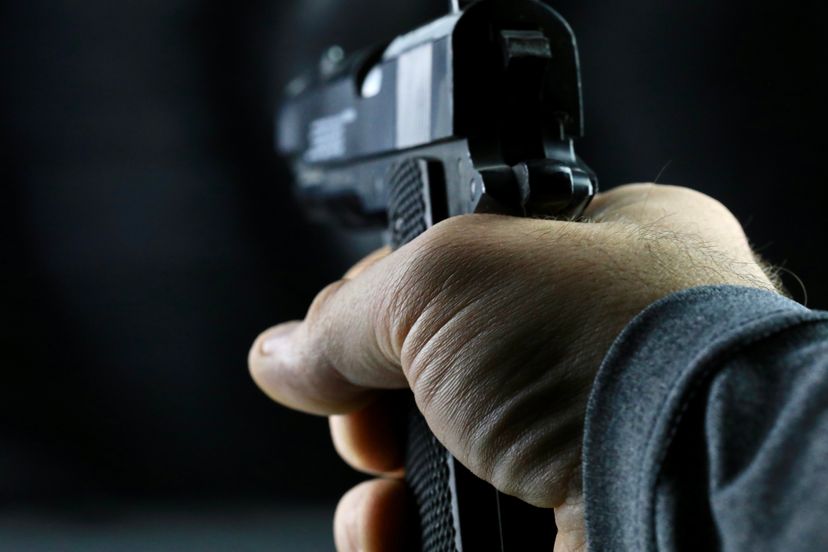
About This Quiz
"Get ready to dive into the world of firearms with our exciting quiz! From the impact of firearms on history to the weapons of famous sleuths like Dirty Harry and James Bond, this quiz will put your knowledge to the test. Do you know what an 18th-century coachman would use to ward off highway bandits? Or the most popular weapon on the planet? You might be surprised by what you learn!
With questions that cover the firearms industry, history, and popular social stories, this quiz is sure to keep you on your toes. Test your knowledge and see if you can guess which firearm was found propped against a Nevada tree in 2015. It's a fascinating story that you'll want to look up after the quiz. Are you ready to take aim and show off your firearms expertise?
Lock and load for one of the most challenging and fun gun quiz you'll take in a long time. Whether you're a firearms enthusiast or just curious about the world of guns, this quiz is sure to entertain and educate. So, get ready to play, search, and explore the world of firearms like never before!
"
Snipers prefer accuracy over rapid-fire capabilities, and a bolt-action rifle fitted with a telescopic sight can be a lethal combination. During World War II, Russian snipers used Mosin-Nagant rifles -- bolt-action but with internal magazines -- to kill more than a few Axis soldiers.

James Bond's favorite pistols are Walther PPK, P5 Compact, P99 and PPK/S.

Early firearms had smooth bores and fired projectiles with little or no spin. These projectiles had to have a stable shape to keep them from tumbling. Then came rifling, or spiral grooves cut into the inside of the barrel. Grooves impart spin to a bullet moving down the barrel, and a spinning bullet has greater accuracy over a long distance.
Advertisement
Also called the "Tommy Gun" (and a number of other nicknames), the Thompson submachine gun is known as the Chicago Typewriter in real life and in "Resident Evil 4."
According to scholars and archaeologists, China gave the world what it needed for spaghetti and spaghetti Westerns. The first firearms that used gunpowder to launch a projectile came from the Yuan dynasty in the 13th century. These bronze hand cannons weren't very accurate, but they must have scared the heck out of their enemies.
First, John Browning designed the .45-caliber cartridge, a larger type of ammunition with greater stopping power. Then he developed what some say is one of the finest weapons ever made: the Colt semi-automatic, .45-caliber pistol. The U.S. Army adopted Browning's new pistol in 1911 and designated it the M1911.
Advertisement
Maj. Uziel Gal developed his 9 mm submachine gun, the Uzi, in 1948. Its design made it easy to manufacture, and it also was remarkably reliable and accurate. As a result, more than 10 million have been made over the years.
Samuel Colt put the revolver on the map during the U.S. Civil War when he made 100,000 of the weapons for the Army and Navy. After the war, the Army version -- also known as the Peacemaker or Colt .45 -- became the symbol of frontier life and outlaw justice.
In World War I, infantrymen relied on bolt-action rifles, such as the Mauser Gewehr 1898 and the Springfield M1903. By World War II, soldiers had something better -- semi-automatic rifles capable of automatic reloading. U.S. troops used the M1 Rifle, which became known as the M1 Garand after John C. Garand, the Canadian who developed the weapon.
Advertisement
Remington introduced the Model 870 pump-action shotgun in 1950. Since then, more than 9 million 870s have been manufactured for hunters, sportsmen, law enforcement officers and soldiers. It's especially popular as a riot gun because it's more likely to wound than kill at moderate to long range.
Flintlock shotguns were popular in the 18th century. One such gun featured a flared muzzle and went by the name blunderbuss, which was Dutch for "thunder gun." This short-barreled rifle fit nicely under a coach seat and could be loaded quickly, even on a bumpy carriage ride, through its wide muzzle opening.
The U.S. introduced the M16 during the Vietnam War as a rifle that never needed cleaning. This proved to be wishful thinking, especially with early designs. Still, the lightweight nature of the M16, combined with its low recoil, made it a popular weapon.
Advertisement
Can you hear the familiar kalash klack? That's the sound of a soldier (or terrorist) preparing his AK-47 for operation. It's not the most elegant weapon, but the AK-47, developed by Mikhail Kalashnikov for the Soviet Red Army, is cheap to make and flat out works in any condition or environment.
"Go ahead, make my day." The Smith & Wesson Model 29 has been around for nearly 50 years, but it was Dirty Harry's immortal words, spoken as he leveled this weapon, that made it famous. Chambered for .44 Magnum ammunition, the M29 can crack a truck engine block with a single shot.
If you have an itchy trigger finger, you don't want an automatic weapon -- it will fire bullets as long as you squeeze the trigger or until the magazine empties. A better option might be a semi-automatic, or self-loading, gun, which fires a single round, ejects the spent cartridge and then loads the next round every time the trigger is pulled.
Advertisement
A 132-year-old Winchester Model 1873, nicknamed "The Gun That Won the West," was found in Great Basin National Park purely by happenstance.
A lot of people get this wrong, so don't feel bad if you guessed "assault rifle." In reality, AR is an abbreviated form of "ArmaLite rifle." ArmaLite refers to the company that came up with the original design in the 1950s.
Germany introduced the Sturmgewehr ("Storm Rifle") 44 rifle in 1943. With a 30-round detachable box magazine and fully automatic firing, the StG 44 launched the assault rifle category and spawned a number of similar designs, including the AK-47 and M16.
Advertisement
Soldiers wearing both blue and gray used a rifle-musket known as the Springfield, after the armory in Springfield, Mass., where many were produced. The rifle fired a conical-shaped bullet named after its French inventor, Claude-Étienne Minié. Unlike solid balls, which passed cleanly through a human body, the Minié bullet flattened and deformed on impact, shattering bones and shredding organs along its path.
In 1900, George Luger introduced what would become a firearm classic -- the P-08. The P stands for "parabellum," a 9 mm round that has been widely adopted by other gun manufacturers. Most people today refer to the weapon as a Luger, and it remains popular among collectors and enthusiasts looking for an accurate pistol that's comfortable to shoot.
The Australian Army used Lewis machine guns in an attempt to fight off rampaging emus. The emus won ... or, at least, the army stopped trying to shoot them.
Advertisement
Richard Lawrence, probably under the effects of lead poisoning, failed to assassinate President Andrew Jackson when neither pistol he had brought with him successfully fired. Congressman Davy Crockett then tackled the would-be assassin.
A frame taken from a video surveillance camera in the Columbine High School cafeteria clearly shows Dylan Klebold carrying a TEC-DC9, or TEC-9, in one gloved hand. The gun was included in the 1994 Federal Assault Weapons Ban.
Famous for their use in dueling, the pistols drawn at dawn were most likely to be flintlock.
Advertisement
When "Manson family" member Lynette "Squeaky" Fromme tried to assassinate Ford in Sacramento, California, she did not realize she needed to chamber a round before firing.
Hand cannons were commonly used in 13th-century China and eventually caught on in Europe as well.
Colt's use of assembly line mass-production led to the Colt Frontier Six Shooter's dominance in the American West.
Advertisement
With a top range of 2.5 miles and a 0.01-kiloton payload, the Davy Crockett was a tactical recoilless nuclear rifle that was deployed with the U.S. Army until 1971.
When Gaston Glock introduced the Glock 17 in 1982, it was hailed as a "plastic pistol" and sent ripples of panic through air travelers who thought the weapon would remain invisible to airport security scanners. In reality, the Heckler & Koch VP70 predates it by more than a decade.
Designed by a U.S. army general, the Thompson submachine gun may be the most recognizable firearm of all time. Gangsters of the 1920s often wielded their "Tommy Guns" right before they said, "Eat some lead, copper!"
Advertisement